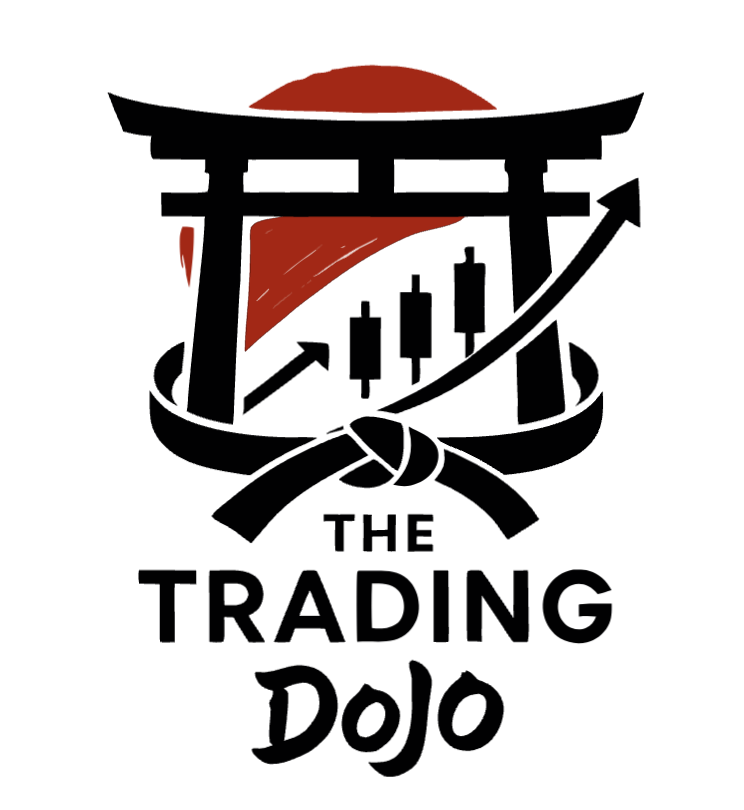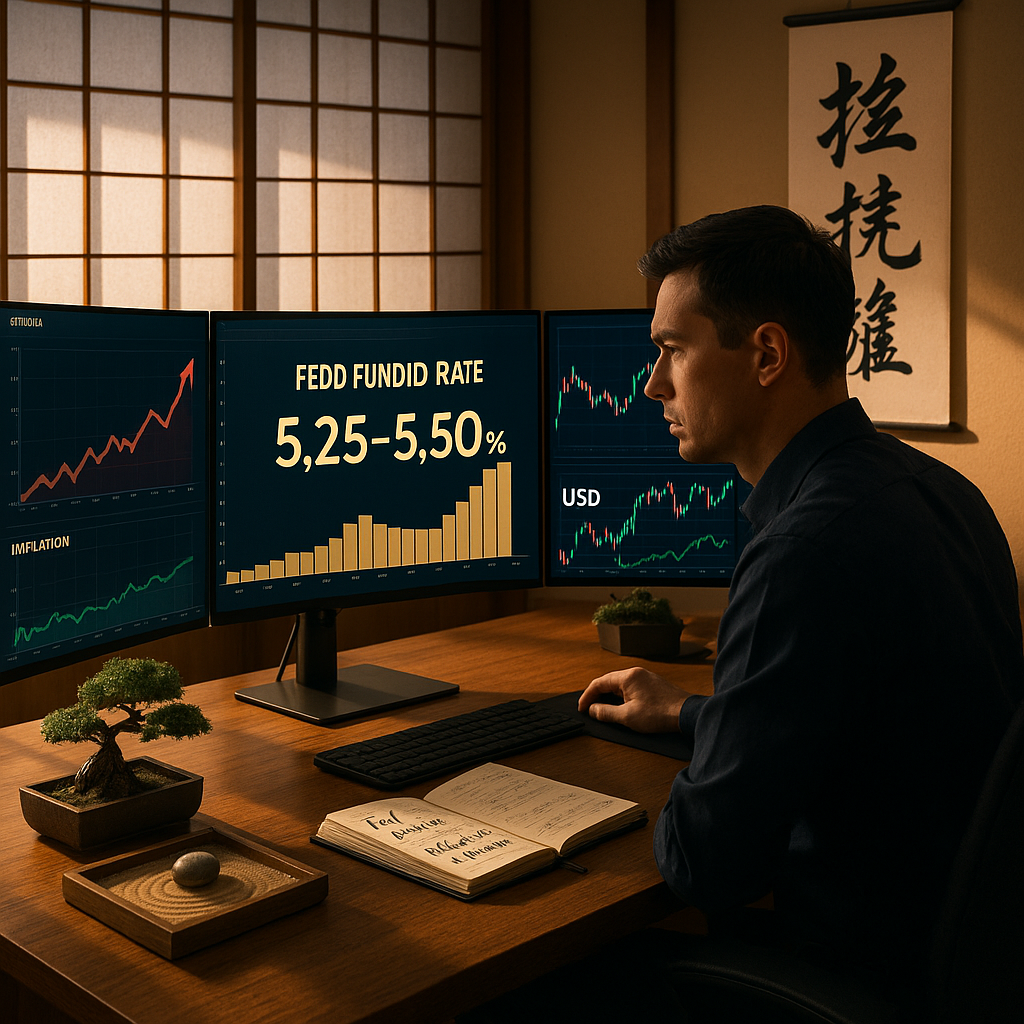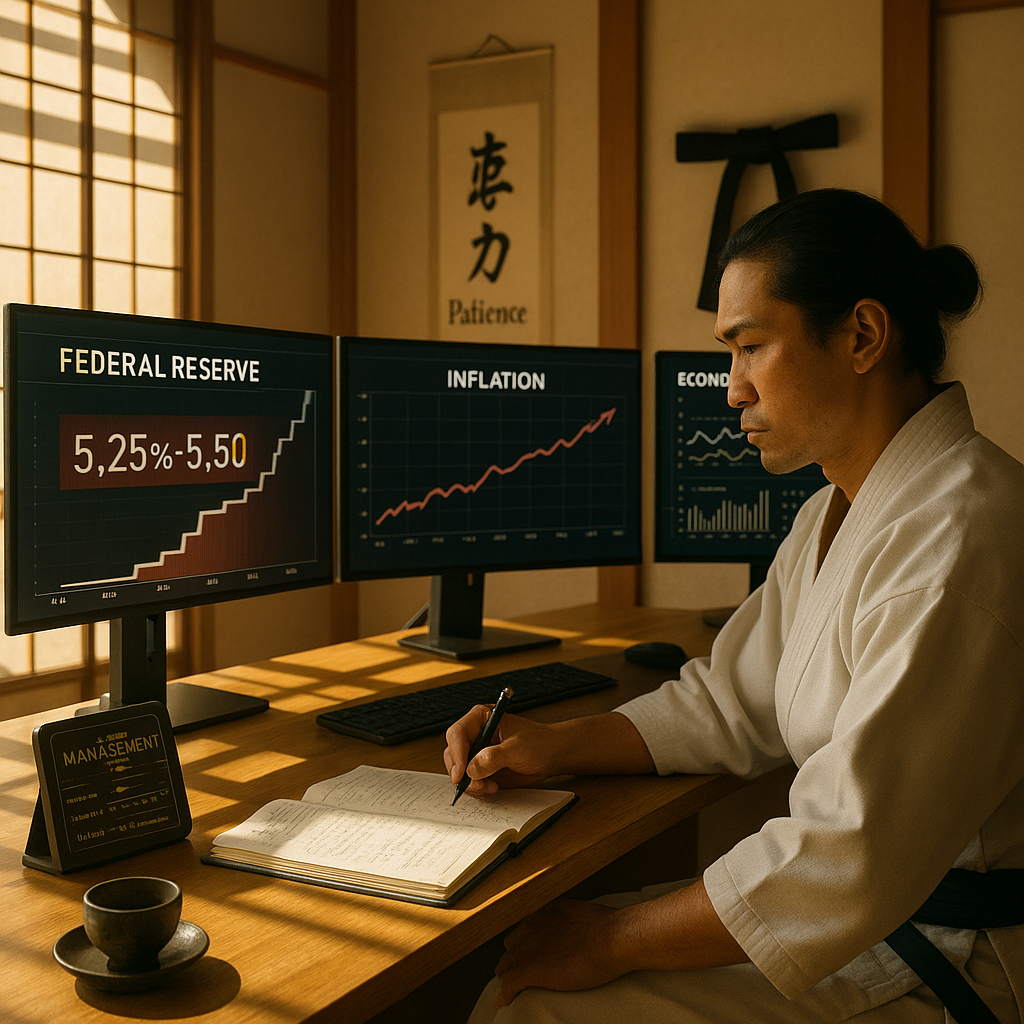Key Takeaways
-
Fuel uninterrupted focus with targeted brain nutrients: Consuming foods rich in omega-3 fatty acids, B-vitamins, and antioxidants can enhance memory, clarity, and mental stamina during demanding trading sessions. These nutrients support executive function, helping you stay sharp and make sound decisions.
-
Hydration isn’t optional; it is your cognitive edge: Even mild dehydration impairs decision-making speed and accuracy. Consistently drinking enough water is essential to maintain mental agility and minimize costly mistakes, especially when every second counts.
-
Strategic meal timing powers your trading day: Eating balanced meals and snacks at scheduled intervals stabilizes energy and blood sugar levels. This helps prevent mental fatigue and emotional swings during long, high-pressure trading periods.
-
Stress-busting foods tame trading volatility: Incorporating magnesium-rich foods, dark leafy greens, and fermented probiotics may help regulate stress hormones and support emotional control when market pressures rise.
-
Sustainable habits trump quick fixes: Building routines such as prepping nutrient-dense snacks in advance or setting hydration reminders fosters positive behaviors that underpin peak performance, regardless of how the market shifts.
-
Nutrition defends against decision fatigue: Smart dietary choices help reduce cognitive overload, enabling traders to remain clear-headed, resilient, and less prone to reactive decisions when volatility surges. This benefit is crucial yet often overlooked.
Optimal trading performance begins well before market open.
It starts with what you put on your plate and in your glass. In the following sections, discover science-backed strategies and straightforward daily habits that can sharpen your trading edge, one meal at a time.
Introduction
In the world of trading, even a fraction-of-a-second lapse in focus can result in more than a missed opportunity; it can lead to tangible financial losses. While robust strategies and technical expertise often take the spotlight, nutrition quietly drives every reaction, decision, and spark of mental energy behind the screen. For traders, following an optimal diet is not about trying every headline-grabbing supplement or choking down a list of one-dimensional “brain foods.” It’s about consistently fueling clear thinking, rapid-fire decision-making, and sustained alertness, especially during lengthy, high-intensity sessions.
By combining targeted nutrients, adequate hydration, and sustainable eating habits, traders can experience a meaningful transformation in how they feel and function at their desks.
This article explores proven strategies that boost cognitive performance, reduce fatigue, and build the resilience needed to thrive in both bullish and bearish markets.
Honestly, your next trading advantage may come as much from your kitchen as from your trading terminal. Who knew?
The Role of Nutrition in Trading Performance
Trading excellence requires unwavering mental clarity, quick decisions, and emotional resilience—all of which are strongly influenced by nutrition.
Studies in the Journal of Clinical Medicine reveal that specific nutrients can improve working memory by up to 15% and decrease reaction times by 10%. That can make a critical difference on the trading floor.
Stay Sharp. Stay Ahead.
Join our Telegram Channel for exclusive content, real insights,
engage with us and other members and get access to
insider updates, early news and top insights.
 Join the Channel
Join the Channel
Nutrition supports trading performance through several important pathways:
- Neurotransmitter Production: Amino acids and essential vitamins are the building blocks for dopamine and serotonin, neurotransmitters that sustain focus and stabilize emotions when markets get volatile.
- Energy Metabolism: Complex carbohydrates and healthy fats supply sustained mental energy, reducing the likelihood of crashes and those impulsive or irrational trades.
- Cellular Protection: Antioxidants defend brain cells against oxidative stress, which is a common byproduct of prolonged high-pressure decision-making.
In a study tracking professional traders, those adhering to structured nutrition plans made 23% fewer decision-making errors during periods of high volatility compared to those with unplanned or haphazard eating routines.
While this evidence is compelling for trading desk performance, the impact of nutrition extends to many high-pressure fields. In healthcare, for example, optimal nutrition translates to clearer diagnoses and better patient management. In finance, it influences risk assessment and portfolio decisions. Likewise, educators and legal professionals rely on proper nutrition for sustained focus, and marketers benefit from consistent energy to craft data-driven campaigns.
Essential Nutrients for Trading Success
Strategic nutrition involves more than just healthy eating; it requires intentional selection of nutrients proven to bolster mental performance and stress resilience.
Omega-3 Fatty Acids
Research highlights that DHA and EPA (two critical omega-3s) can increase information processing speed by as much as 20%.
These fatty acids are crucial for optimal brain cell communication and reducing inflammation. Traders should add:
- Wild-caught salmon (2-3 servings per week)
- Walnuts (a handful daily)
- Chia seeds (1-2 tablespoons daily)
- Flaxseeds and sardines can be included for variety and to suit different dietary preferences.
In other industries, omega-3s support memory retention in students and decrease cognitive decline for professionals in high-stakes environments like law and finance.
B-Complex Vitamins
These vitamins are essential for mental stamina, clarity, and maintaining balanced mood:
- B12: Eggs and leafy greens
- B6: Whole grains, bananas, and poultry
- Folate: Legumes, spinach, and fortified cereals
Ensuring a steady intake of B vitamins also supports cognitive health for educators, medical staff, and business leaders managing complex workloads.
Antioxidants
Antioxidants provide an extra layer of defense during mentally taxing sessions:
- Blueberries: Associated with a 12% improvement in memory recall
- Dark Chocolate: Choose varieties with 70%+ cacao for focus and mood
- Green Tea: The L-theanine in green tea gently elevates mental alertness while helping to reduce stress
This trio offers broad cognitive benefits, supporting other sectors from emergency services (where quick recall is vital) to marketing and creative roles demanding sharp focus.
Hydration’s Critical Role
Maintaining peak cognitive function is impossible without proper hydration. Just a 2% drop in hydration, even before thirst kicks in, can decrease cognitive performance by up to 13%. For traders, this means:
- Slower analysis of constantly shifting data
- Decreased ability to recognize patterns
- Impaired risk assessment and suboptimal decision-making
Similar effects are observed in medical professionals, teachers managing classes, or anyone engaged in sustained mental work.
Optimal Hydration Strategy
To maximize focus and mental agility:
- Begin your trading day with 500ml of water.
- Keep a clearly marked water bottle within arm’s reach at your workspace.
- Set digital hydration reminders at hourly or two-hour intervals.
- Monitor that your urine stays a clear to light yellow color (a reliable indicator of proper hydration).
In education and healthcare, these same hydration strategies help maintain energy and mental clarity over long, demanding shifts.
Timed Nutrition for Peak Performance
When and how you eat is just as important as what you eat for sustaining energy in high-pressure scenarios.
Pre-Market Preparation
About 60–90 minutes before markets open, or before any intensive work period, choose a balanced meal:
Stay Sharp. Stay Ahead.
Join our Telegram Channel for exclusive content, real insights,
engage with us and other members and get access to
insider updates, early news and top insights.
 Join the Channel
Join the Channel
- Complex carbohydrates (oatmeal, sweet potatoes, or quinoa)
- Quality protein (eggs, Greek yogurt, lean meats)
- Healthy fats (avocado, mixed nuts, seeds)
This meal sets the stage for sustained focus and energy.
Honestly, it’s a routine that works just as well for teachers prepping for long classes or healthcare workers at the start of extended shifts.
During Trading (or Work) Hours
Strategic small snacks help smooth energy fluctuations:
- 10:30 AM: Handful of nuts and a serving of fruit
- 1:00 PM: Light, protein-rich lunch (chicken salad, tofu bowl)
- 3:00 PM: Green tea and a piece of dark chocolate for a gentle alertness boost
Retail workers, legal professionals, and anyone facing afternoon slumps can benefit from this kind of snack timing.
Stress-Busting Foods
Market volatility drives up cortisol, the stress hormone. Luckily, diet can help moderate this response and support calm, composed decision-making.
Magnesium-Rich Foods
Magnesium helps regulate the body’s stress response and keeps nerve signals steady. Incorporate:
- Dark leafy greens (spinach, Swiss chard)
- Pumpkin seeds
- Black beans
- Almonds
These foods are equally beneficial for finance professionals confronting high-pressure negotiations and students managing exam stress.
Adaptogenic Herbs
Certain herbs have been shown to reduce the impact of stress:
- Ashwagandha: Clinical studies reveal a 28% reduction in cortisol.
- Rhodiola Rosea: Improves mental performance and stamina under stress.
- Holy Basil: Linked to clearer thinking in tense situations.
Remember to consult a healthcare provider before starting new herbal supplements.
These adaptogens can offer meaningful support for legal teams, medics, and educators during crunch times.
Fermented foods and probiotics (such as kefir, sauerkraut, or kimchi) are also linked to lower anxiety and improved emotional regulation, further supporting professionals in demanding environments.
Building Sustainable Eating Habits
Lasting results depend on creating reliable nutrition routines rather than relying on quick fixes.
Environment Design
- Stock your workspace drawer with healthy, grab-and-go snacks such as mixed nuts or granola bars.
- Prepare meals ahead of time, ideally during less hectic periods.
- Remove processed and high-sugar foods from easy reach to avoid unintentional overeating.
These approaches are effective for busy parents, healthcare staff, and anyone navigating a high-tempo workday.
Implementation Strategy
- Sunday Prep: Reserve 30 minutes for meal planning aligned with your trading or work schedule.
- Daily Checklist: Track water intake, meal times, and nutrient variety.
- Monthly Review: Evaluate your nutrition strategies against your trading or work performance to fine-tune your approach.
Automation Techniques
- Subscribe to healthy meal or snack delivery services to save decision energy.
- Set phone or calendar reminders for key nutrition and hydration intervals.
- Use auto-refill services for essential supplements or healthy pantry staples.
These automation strategies are adaptable for professionals across sectors, whether on trading desks, in hospital wards, classrooms, or remote offices.
Common Trading Nutrition FAQs
What should I eat during extended trading sessions or long workdays?
Opt for foods that offer slow, steady energy release:
- Rice cakes topped with almond butter
- Trail mix with mixed nuts and dried fruit
- Protein smoothies blended with berries
These snacks are handy for teachers, medical professionals, and creatives working through long stretches.
How can I maintain focus during afternoon slumps?
To stay sharp during lulls:
- Choose a light, protein-rich lunch to avoid a post-meal energy crash.
- Enjoy green tea for gentle, sustained caffeine.
- Incorporate brief movement breaks every 45 minutes to boost circulation and attention.
These strategies are recommended for anyone facing intense focus requirements throughout the day.
Should I take supplements for cognitive or trading performance?
Some well-supported supplements include:
- Omega-3 fatty acids (2-3 grams daily)
- Vitamin D3 (2000-4000 IU daily, especially in months with limited sunlight)
- Magnesium (200-400mg daily for stress regulation)
Always consult a healthcare provider before starting any new supplementation routine to ensure individual safety and effectiveness.
Conclusion
Optimizing nutrition is far more than a personal wellness trend for traders. It represents a deliberate, research-backed advantage that can sharpen mental acuity, reduce stress, and directly enhance professional performance. Foundational nutrients such as omega-3s and B vitamins, paired with diligent hydration and stress-mitigating foods, make a documented difference in cognitive resilience and speed. Sustainable routines around nutrition and hydration, supported by smart environment design and automation, position traders (and professionals in any high-stakes field) for consistent, peak results.
As trading and other high-pressure industries become increasingly competitive and complex, integrating thoughtful nutrition into your daily practice may become one of the most strategic, accessible, and reliable assets for long-term success.
Tomorrow’s leaders will not just adapt to volatile environments. They will anticipate and outlast them through smarter, science-driven choices both at their desks and at their tables.
The path to sustained advantage starts with what you choose to eat and drink today.





Leave a Reply